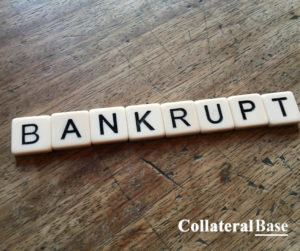You Do Not Buy Patented Grain Products
Typically, Monsanto, or another patent holder, does not sell its seeds to farmers. Instead, they license the patent in the seed to farmers to use instead. Bank financing ag dealers selling patented grain products should be careful to not think they have inventory, when instead they do not have any rights at all.
Financing Dealers of Patented Grain Products
Agricultural lenders not only finance farmers; they also finance dealers that supply farmers with agricultural products, including fertilizers and seed. In doing so, these lenders typically take blanket liens on all personal property to secure existing and future indebtedness. Many lenders assume that if they have found no Uniform Commercial Code financing statement filed against a dealer, they need be concerned only with subsequent lenders of purchase-money security interests in inventory. As to these PMSI lenders, the original lender will still retain priority in all other property assuming the lender was first to file. Unfortunately, the first lender that files a financing statement covering all property of a dealer in agricultural products may be lulled into a false sense of security.
Lenders must be aware that an agricultural dealer’s inventory differs dramatically from the inventory of other commercial retailers. Lenders may believe that seed in the hands of a dealer is simply inventory. The supplier of the dealer, however, sees a patented product that only a licensed representative may sell. If the dealer has defaulted on its license, no one, including the lender in an UCC foreclosure sale, has authority to sell the seed. Consequently, the seed will have little value as collateral.
Problem Ag Loan
J.E.M. Ag Supply, Inc. v. Pioneer Hi-Bred International, Inc.,
In 2001, the United States Supreme Court upheld the right of seed manufacturers to obtain a utility patent on seed. In J.E.M. Ag Supply, Inc. v. Pioneer Hi-Bred International, Inc., 534 U.S. 124, 151 L.Ed.2d 508, 122 S.Ct. 593 (2001), Pioneer sued J.E.M. Ag Supply, doing business as Farm Advantage, for patent infringement. Farm Advantage purchased seed from Pioneer. However, Farm Advantage was not an authorized dealer of Pioneer, and when it resold the seed, Pioneer sued for patent infringement. The Supreme Court upheld Pioneer’s patent and the verdict for Pioneer on infringement.
A utility patent grants the patent-holder the exclusive right to restrict the use, manufacture, or sale of the patented product. However, under the first-sale doctrine, once a product is first sold, typically the purchaser has a right of resale. This can lead lenders to believe that once a dealer purchases seed, the patent-holder’s rights have been exhausted, thus permitting the lender to foreclose on its security interest in the seed and resell it.
First Sale Doctrine Does Not Apply to Patented Grain Products
Unfortunately, a lender cannot foreclose the patent-holder’s rights. The first-sale doctrine applies only if the sale is an unconditional sale. Seed patent-holders do not make unconditional sales to dealers. Rather, they license a dealer to sell a product that comes with a limited use label authorizing its use only as seed to grow grain. The result of these limited sales is that only licensed dealers may sell the seed.
This method of restricting seed sales was upheld in Pioneer Hi-Bred International, Inc. v. Ottawa Plant Food, Inc., 283 F.Supp.2d 1018 (N.D. Iowa 2003), one of the cases related to a Farm Advantage resale of Pioneer seed. Ottawa Plant Food purchased seed from Farm Advantage and then sold the seed to farmers. Ottawa was not a licensed dealer. When Pioneer sued Ottawa for patent infringement, Ottawa based its defense on the first-sale doctrine, arguing that Pioneer’s patent rights were exhausted on its sale to Farm Advantage.
The district court disagreed, finding that the label on the bags of seed corn authorized only the use of the seed and, thus, implicitly reserved all other patent rights. Thus, there was no unconditional sale of the seed, and the first-sale doctrine did not apply.
Article 9 Security Interests in Patented Goods
The impact of these cases on a lender with a security interest in a dealer’s inventory is severe. Although Article 9 of the UCC permits the creation of a security interest in the patented goods pursuant to 810 ILCS 5/9-408(a), the enforcement of the security interest is restricted under 810 ILCS 5/9-408(d).
Section 9-408(a) renders ineffective restrictions on an assignment of a general intangible, which includes license rights, but only to the extent that these restrictions impair the creation and perfection of a security interest. A lender that perfects a security interest in inventory and general intangibles would appear to have a valid security interest in both the inventory (the seed) and the right to sell (the license held by an authorized dealer).
However, having the security interest and being able to enforce it are two different matters. Section 9-408(d) precludes actual enforcement of a license if by its terms the license is not transferable. Thus, upon default, a secured party might take possession of the seed, but it will not be able to sell it without risking a suit for patent infringement.
Article 9 is of limited help. Its only benefit is in a dealer bankruptcy case in which:
- The Dealer’s License Was Not Terminated Prior To Bankruptcy,
- The Dealer Is Able To Assume The License, And
- The Dealer Sells The Seed In The Ordinary Course Of Its Business As It Reorganizes.
In such a situation, the lender’s security interest will transfer to the proceeds of the lawful sales by the dealer. However, it is unlikely in most cases that the dealer will meet all of these criteria. A patent-holder that has not received royalties will usually move to terminate the dealer’s license. If this occurs prior to a bankruptcy filing, the patent-holder cannot be compelled to grant a license to the dealer-debtor in bankruptcy. The dealer will have no more authority to sell the seed.
If the patent-holder does not manage to terminate the license prior to a bankruptcy filing, a dealer still may be restricted in selling the seed. If a dealer is behind in royalty payments, the dealer must cure these defaults in order to assume the license in bankruptcy. The result is that the patent-holder’s claim jumps to the head of the priority list even though the patent-holder does not hold a security interest.
Finally, the debtor cannot solve the problem by a sale outside the ordinary course of business pursuant to §363 of the Bankruptcy Code. Section 363  permits sales free of an interest only in certain circumstances, specifically if the interest is a lien or is one for which applicable law will permit a sale in satisfaction of a money award. 11 U.S.C. §363. An intellectual property interest is not a lien, and applicable law does not permit a transfer without consent. See, e.g., In re CFLC, Inc., 89 F.3d 673 (9th Cir. 1996) (§363 sale cannot result in transfer of nonexclusive, nontransferable license over holder’s objection).
permits sales free of an interest only in certain circumstances, specifically if the interest is a lien or is one for which applicable law will permit a sale in satisfaction of a money award. 11 U.S.C. §363. An intellectual property interest is not a lien, and applicable law does not permit a transfer without consent. See, e.g., In re CFLC, Inc., 89 F.3d 673 (9th Cir. 1996) (§363 sale cannot result in transfer of nonexclusive, nontransferable license over holder’s objection).
This discussion demonstrates that a lender financing a dealer in patented seeds cannot rely on the inventory. To solve this problem, the lender might try to obtain some limited license from each of the manufacturers before lending. Whether any manufacturer will be receptive to granting such a license is unknown. Also, depending on the number of products (and thus licenses) involved, this may raise the cost of documenting the financing for a small dealer to a prohibitive amount.
Another option is for the lender to consider lending only against a borrowing base. The base should include only accounts and inventory not subject to these licenses. The lender will have to perform occasional audits of the borrowing base to ensure that improper inventory is not included.
The last option is for the lender to recognize that it is in reality partially unsecured and to use this knowledge in its underwriting. This knowledge may then lead the lender either to decline the loan as too risky or, alternatively, to price the loan through a higher interest rate due to the greater risk.

Thomas Howard
Distressed Assets Lawyer
Whether you’re a bank or distressed asset purchaser, Thomas Howard can help you quickly recover your loans.

Thomas Howard was on the ball and got things done. Easy to work with, communicates very well, and I would recommend him anytime.
R. Martindale
Need A Business Lawyer?
- real estate contracts
- business contract disputes
- Shareholder litigation
- cannabis business
- fraud actions
- mechanic’s liens


